Search
Search Results
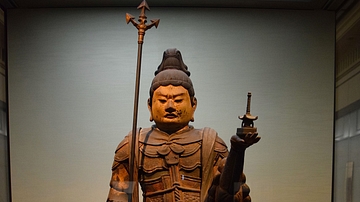
Image
Japanese Bishamon Ten Scuplture
Made of wood with polychrome, cut gold leaf, and crystal eyes, this is one of the most remarkable statues from ancient Japan. The ink inscription eclosed in the statue of Bishamon Ten (Vaisravana) reveals that it was dedicated on the seventh...
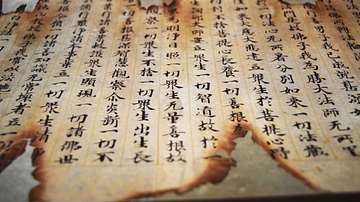
Image
Section of the Japanese Flower Garland Sutra
This is one of 60 scrolls from a transcription of the "Avatamsaka Sutra." Ruled lines in gold pigment segment the paper, which is decorated with flakes of god. At some point, the top and bottom of this scroll were burnt in a fire with the...
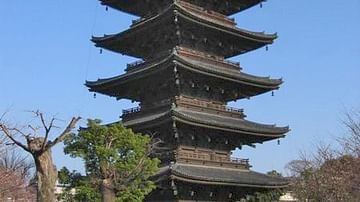
Definition
Heiankyo
Heiankyo (Kyoto), located in the centre of Honshu island, was the capital of Japan for over a thousand years and gave its name to one of the golden ages of Japanese history, the Heian Period (794-1185 CE). Built according to Chinese design...

Video
The Development of Ancient Greek Architecture
Some of the most exceptional and distinctive buildings from the ancient world were crafted by the architects of ancient Greece and some of their structures like theatres, temples, and stadia became staple buildings in cities and towns from...

Image
Islamic Architecture in Mali
Sankore Mosque, Timbuktu, Mali. The mosque was built in the late 1100s CE.
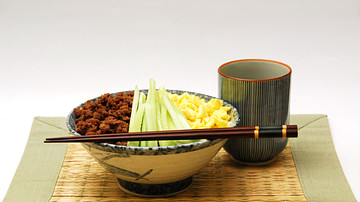
Article
Food & Agriculture in Ancient Japan
The diet of ancient Japan was heavily influenced by its geography as an archipelago, foodstuffs and eating habits imported from mainland Asia, religious beliefs, and an appreciation for the aesthetic appearance of dishes, not just the taste...
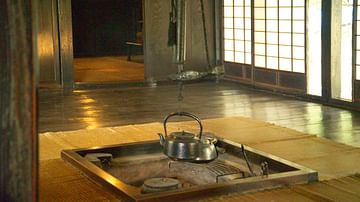
Image
Traditional Japanese Hearth
A traditional hearth in a Japanese home.
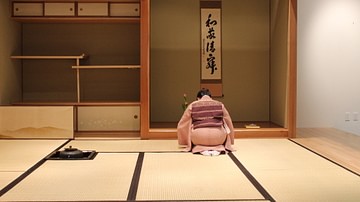
Image
Japanese Tea Room
A traditional Japanese tea room with tatami matting, caligraphy hanging scroll and a single vase of flowers. The hearth is set into the floor on the left.
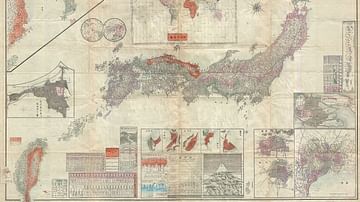
Image
Map of the Japanese Empire, 1895
Map of the Japanese Empire, 1895. It was issued shortly after the 1895 Japanese invasion of Taiwan and is consequently one of the first Japanese maps to include Taiwan and Korea as provinces of Imperial Japan. Geographicus Rare Antique Maps...
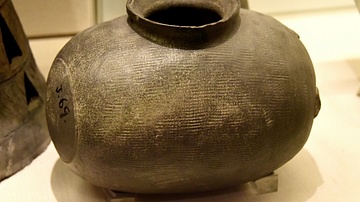
Image
Japanese Funerary Vessel
This Japanese funerary vessel is an example of Sue wares, originally made for tombs. They were probably used for feasting and drinking at the time of the funeral and then buried with the person who had died. They were crafted on a potter's...